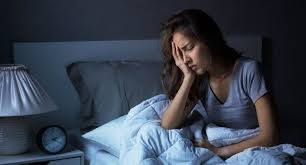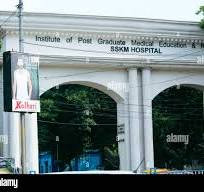Too Tired to Sleep? The Hidden Reasons Behind Exhaustion Without Rest

IIE DIGITAL DESK :You’re drained, your body feels like it’s carrying a load of bricks, and yet, when your head hits the pillow, sleep escapes you. This frustrating state of being exhausted but sleepless is more common than many realize. While the natural assumption is that fatigue should automatically lead to restful slumber, the human body and mind often operate with far more complexity. As more people report feeling persistently tired yet unable to sleep, experts are turning their attention to the deeper causes behind this modern dilemma.
Chronic stress remains one of the leading contributors to this contradictory condition. In today’s fast-paced world, mental and emotional exhaustion often outpace physical tiredness. When the brain is overworked, anxious, or overwhelmed, it continues to stay alert even when the body is crying out for rest. This misalignment creates a state of tired wakefulness, where you're too weary to function well, but too wired to drift off. Cortisol, the primary stress hormone, surges during such periods, actively disrupting the natural sleep-wake cycle and making it harder for the body to transition into sleep.
Another common but under-discussed factor is poor sleep hygiene. With the proliferation of digital devices, many people remain exposed to screens late into the night. The blue light emitted by phones, tablets, and televisions interferes with melatonin production, the hormone responsible for inducing sleep. As a result, even those who are physically exhausted find their internal clocks pushed out of sync, struggling to reach a state of relaxation. Irregular sleep schedules, late-night snacking, and caffeine intake further exacerbate this issue, making the body restless even after a long day.
Underlying health issues also contribute significantly. Conditions like sleep apnea, thyroid imbalances, depression, and iron deficiency can all create scenarios where the body feels depleted but cannot enter restorative sleep. In such cases, individuals might assume they’re simply overworked or stressed, overlooking potential medical conditions that require proper diagnosis and treatment. Sleep disorders are often silent saboteurs, with symptoms that can mimic everyday tiredness while actually being much more disruptive.
Hormonal fluctuations, particularly in women, can also be a hidden cause of this paradox. During menstruation, pregnancy, or menopause, hormonal shifts can disrupt the body’s natural rhythms, leading to feelings of tiredness during the day and alertness at night. Even seemingly minor changes in hormone levels can deeply affect mood, energy, and sleep quality.
Mental health plays a pivotal role as well. Anxiety, depression, and emotional burnout often manifest in disrupted sleep patterns. Racing thoughts, worry loops, and overthinking can keep the brain in an active state long after the day’s activities have ended. What the body needs in these moments is rest, but what the mind delivers is tension and hypervigilance.
Solving the puzzle of being tired but unable to sleep involves addressing both physical and psychological factors. Awareness is the first step. While a warm cup of herbal tea or a relaxing bedtime routine may help some, others might need professional guidance to uncover deeper issues. In a society where exhaustion is worn like a badge of honor, learning to rest—truly rest—might just be the most radical act of self-care.
You might also like!



























